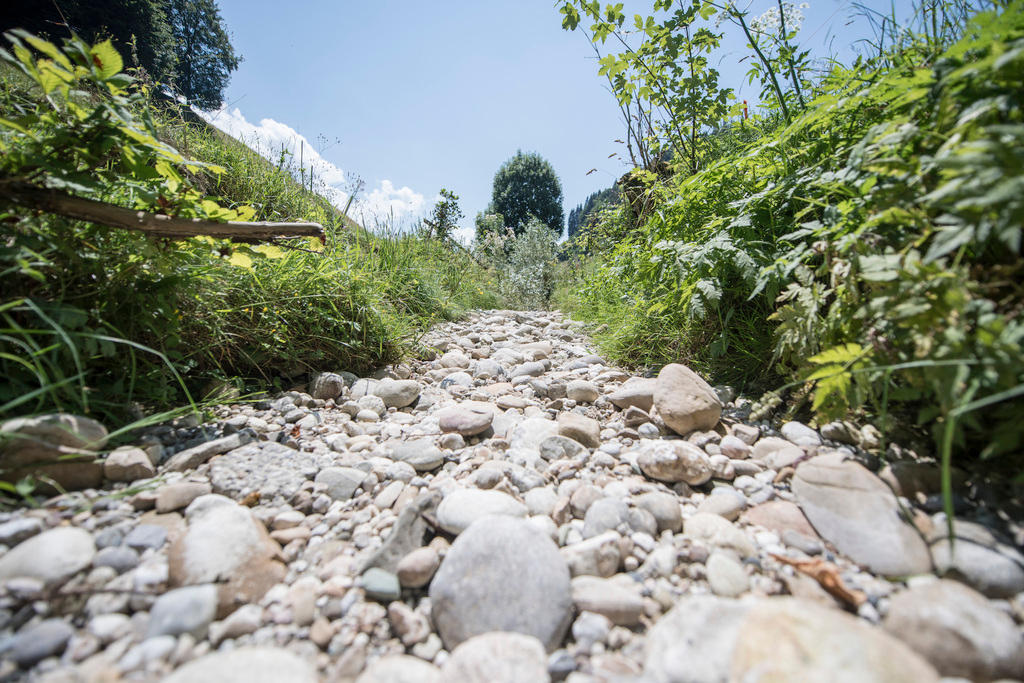
Swiss summer driest since 1921

The current summer in Switzerland is the driest on record since 1921, and there is no sign of much rainfall arriving in the near future, according to the meteorological office.
While the years 2003 and 2015 were also parched, the dry spell this year started earlier, stretching back into the Spring. There has not been so little rainfall between the start of April to the middle of July for nearly 100 years, reports Swiss public television SRF.
Several cantons have banned open fires – a common feature of Swiss summers as people go out into the countryside to grill sausages – for fear of dry vegetation going up in flames and spreading.
This is also likely to affect August 1 Swiss national day celebrations in many reasons as they traditionally involve bonfires.
While there have been some summer thunder storms, rainfall has been restricted to small areas and the rainclouds have on the whole been swept away by winds.
And there is worse to come, say SRF weather forecasters. The hottest, driest days of summer generally occur between now and August 23 in Switzerland. This will only increase the risk of forest fires, experts warn.
Climatologists also predict more hot, dry summers for years to come according to their models.

More
Switzerland at risk of water shortages and forest fires

In compliance with the JTI standards
More: SWI swissinfo.ch certified by the Journalism Trust Initiative


























You can find an overview of ongoing debates with our journalists here . Please join us!
If you want to start a conversation about a topic raised in this article or want to report factual errors, email us at english@swissinfo.ch.